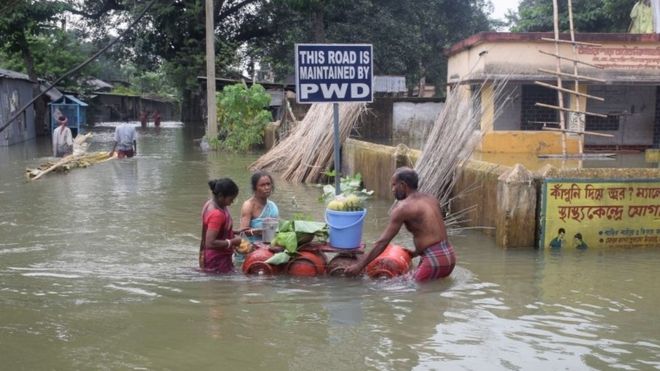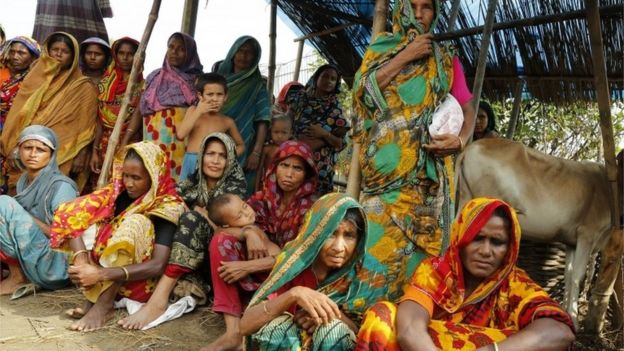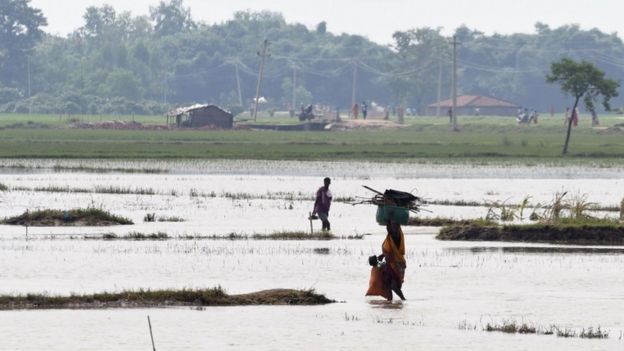16m. people were affected in South Asia flood
 AFP
AFP
More than 16 million people have now been affected by seasonal flooding across a swathe of South Asia, say aid officials.
The floods in Nepal, Bangladesh and India are thought to have killed about 500 people and are expected to worsen.
The International Federation of Red Cross and Red Crescent Societies (IFRC) says it is becoming one of the worst regional humanitarian crises in years.
There are growing concerns about food shortages and disease.
 EPA
EPA
Martin Faller, IFRC's deputy regional director, said more than a third of Bangladesh and Nepal were flooded, while about 11 million people across four northern Indian states were also affected.
Tens of thousands of people have been displaced.
"This is fast becoming one of the most serious humanitarian crises this region has seen in many years, and urgent action is needed to meet the growing needs of millions of people affected by these devastating floods," Mr Faller said in a statement.
"Millions of people across Nepal, Bangladesh and India face severe food shortages and disease caused by polluted flood waters."
 AFP
AFP
Bangladesh, where flood levels are already at a record high, is expected to be further hit as swollen Indian rivers flow down through it in the coming days.
Save the Children Director Mark Pierce said the situation there was "extremely desperate".
- Rhino swept from Nepal to India goes home
- South Asia floods leave 245 dead
- Elephants deployed in Nepal floods rescue
"The sheer volume of water is also making it really difficult to access some of the communities most in need."
Nepal's Red Cross Society said food crops there had been wiped out, as floods hit major farming and agricultural land in the south.
"We fear that this destruction will lead to severe food shortages," said Secretary General Dev Ratna Dhakhwa.
Further heavy rain has been forecast across the region in the coming days, worsening the flooding and making it harder to reach those affected.
Save The Children's India manager, Murali Kunduru, told Reuters that while the monsoon rains come annually, "this year is particularly severe".










No comments: